-
 Bitcoin
Bitcoin $84,711.8419
0.25% -
 Ethereum
Ethereum $1,636.6424
1.20% -
 Tether USDt
Tether USDt $0.9997
0.00% -
 XRP
XRP $2.1374
-1.24% -
 BNB
BNB $590.6497
-0.41% -
 Solana
Solana $133.1469
2.94% -
 USDC
USDC $0.9998
-0.01% -
 Dogecoin
Dogecoin $0.1641
-0.33% -
 TRON
TRON $0.2565
3.58% -
 Cardano
Cardano $0.6444
-0.07% -
 UNUS SED LEO
UNUS SED LEO $9.3883
0.30% -
 Avalanche
Avalanche $20.2619
1.22% -
 Chainlink
Chainlink $12.7973
-1.24% -
 Stellar
Stellar $0.2443
-0.03% -
 Sui
Sui $2.2833
-1.80% -
 Shiba Inu
Shiba Inu $0.0...01217
-1.54% -
 Hedera
Hedera $0.1676
-2.32% -
 Toncoin
Toncoin $2.8307
-2.24% -
 Bitcoin Cash
Bitcoin Cash $339.6821
-0.15% -
 Litecoin
Litecoin $78.0184
-0.57% -
 Polkadot
Polkadot $3.6738
0.45% -
 Dai
Dai $1.0001
0.00% -
 Hyperliquid
Hyperliquid $15.9119
-0.22% -
 Pi
Pi $0.7580
1.06% -
 Bitget Token
Bitget Token $4.2689
-2.38% -
 Ethena USDe
Ethena USDe $0.9989
-0.01% -
 Monero
Monero $208.5128
-0.46% -
 Uniswap
Uniswap $5.4510
0.34% -
 OKB
OKB $52.7951
-1.99% -
 Pepe
Pepe $0.0...07462
2.32%
How to design the token economy in blockchain game development?
A well-designed token economy in blockchain games can boost player engagement and ensure economic stability by using tokens for in-game currency, rewards, and governance.
Apr 13, 2025 at 11:21 am
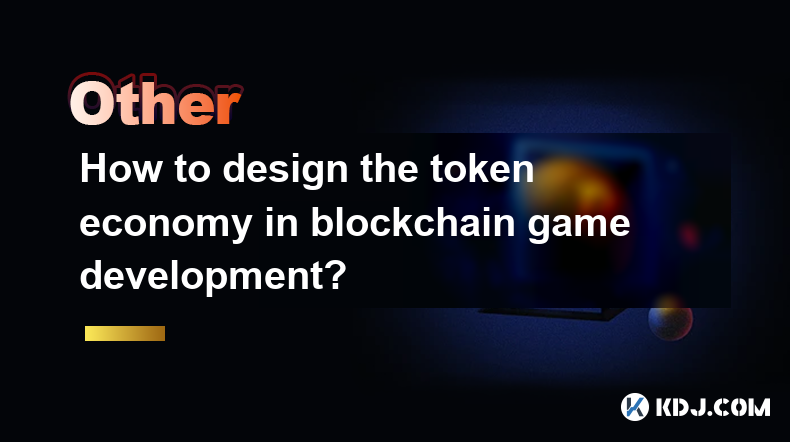
Designing a token economy for a blockchain game is a crucial aspect of game development that can significantly impact player engagement, the game's economic stability, and its overall success. A well-designed token economy not only incentivizes players to participate and invest time and resources but also ensures the long-term sustainability of the game's ecosystem. In this article, we will explore the key components and strategies involved in designing an effective token economy for blockchain games.
Understanding the Basics of Token Economy
A token economy in a blockchain game refers to the system of incentives and rewards that uses tokens as a medium of exchange, value storage, and utility within the game. Tokens can represent various assets such as in-game currency, items, or even governance rights. The primary goal of a token economy is to create a balanced and self-sustaining ecosystem where players are motivated to participate, trade, and contribute to the game's growth.
When designing a token economy, developers must consider several factors, including the token's purpose, distribution mechanisms, and the overall economic model. The token's purpose should align with the game's objectives and player incentives, ensuring that it adds value to the gaming experience. Distribution mechanisms need to be fair and transparent, preventing any single entity from controlling the majority of tokens. The economic model should be designed to maintain balance, preventing inflation or deflation that could destabilize the game's economy.
Defining the Token's Purpose and Utility
The first step in designing a token economy is to clearly define the token's purpose and utility within the game. Tokens can serve multiple functions, such as in-game currency for purchasing items, rewards for completing tasks, or even governance tokens that allow players to vote on game decisions. The utility of the token should be directly tied to the game's mechanics and player engagement strategies.
For example, if the token is used as an in-game currency, players should be able to earn it through various activities such as completing quests, defeating opponents, or participating in events. The token can then be used to purchase items, upgrades, or other in-game assets. Ensuring that the token has real utility and value within the game is essential for maintaining player interest and participation.
Designing Token Distribution Mechanisms
Token distribution is a critical aspect of the token economy that affects the game's initial adoption and long-term sustainability. A well-designed distribution mechanism ensures that tokens are fairly distributed among players, preventing any single entity from accumulating too much power. There are several strategies for token distribution, including initial token offerings (ITOs), airdrops, and mining or staking rewards.
Initial Token Offerings (ITOs): An ITO is a method where tokens are sold to the public before the game's launch. This can help raise funds for development and create an initial player base. It's important to set a reasonable price and limit the amount of tokens sold to prevent early investors from dominating the market.
Airdrops: Airdrops involve distributing tokens for free to existing players or potential users. This can be an effective way to increase awareness and adoption of the game. Airdrops can be targeted at specific groups or distributed randomly to encourage broader participation.
Mining or Staking Rewards: In games that incorporate blockchain technology, players can earn tokens through mining or staking. Mining involves solving complex computational problems to validate transactions on the blockchain, while staking requires players to lock up their tokens to support the network. Both methods can incentivize players to actively participate in the game's ecosystem.
Balancing the Economic Model
Balancing the economic model is essential for maintaining the stability and sustainability of the token economy. An imbalanced economy can lead to inflation or deflation, which can negatively impact player engagement and the game's overall health. To achieve balance, developers need to carefully manage the supply and demand of tokens within the game.
Token Supply: The total supply of tokens should be carefully planned to prevent inflation. Developers can implement mechanisms such as token burning, where a portion of tokens is permanently removed from circulation, to control the supply. Additionally, setting a cap on the total number of tokens can help maintain their value over time.
Token Demand: Creating demand for tokens is crucial for maintaining their value. This can be achieved by integrating tokens into various game mechanics, such as requiring them for essential activities or offering exclusive rewards. Additionally, creating a secondary market where players can trade tokens can further increase demand.
Inflation and Deflation Controls: Developers should implement mechanisms to control inflation and deflation. For instance, adjusting the rate at which tokens are earned or spent can help maintain economic balance. Regular monitoring and adjustments are necessary to respond to changes in player behavior and market conditions.
Encouraging Player Engagement and Retention
A successful token economy should not only attract players but also keep them engaged and retained over time. Incentivizing players to continue playing and participating in the game's ecosystem is crucial for long-term success. There are several strategies to encourage player engagement and retention through the token economy.
Reward Systems: Implementing a robust reward system that offers tokens for various activities can keep players motivated. Rewards can be tied to daily logins, completing challenges, or participating in community events. Offering tiered rewards based on player achievements can further encourage long-term engagement.
Player-Driven Economy: Allowing players to influence the game's economy through their actions can increase engagement. For example, players can buy, sell, or trade tokens and in-game assets on a marketplace, creating a dynamic and player-driven economy. This not only adds value to the tokens but also fosters a sense of ownership and community among players.
Governance and Community Involvement: Incorporating governance tokens that allow players to vote on game decisions can enhance player retention. By giving players a say in the game's development and direction, developers can create a more engaged and loyal player base. Regular community events and updates can further strengthen the connection between players and the game.
Ensuring Security and Transparency
Security and transparency are vital components of a successful token economy. Players need to trust that the token economy is fair and secure, and that their tokens are protected from fraud or manipulation. Implementing robust security measures and maintaining transparency in token distribution and economic management can help build this trust.
Smart Contract Audits: Smart contracts are often used to manage the token economy on the blockchain. Conducting regular audits of these smart contracts can help identify and fix potential vulnerabilities, ensuring the security of the token economy.
Transparent Tokenomics: Providing clear and detailed information about the token economy, including token distribution, supply, and economic mechanisms, can enhance transparency. Regular updates and reports on the game's economic health can help maintain player trust and confidence.
Anti-Fraud Measures: Implementing anti-fraud measures such as transaction monitoring and player verification can help prevent token manipulation and ensure a fair playing field. These measures can include limits on token transactions, anti-money laundering (AML) checks, and real-time monitoring of suspicious activities.
Frequently Asked Questions
Q: How can token economies be integrated with traditional gaming economies?
A: Integrating token economies with traditional gaming economies involves creating a hybrid system where tokens and traditional in-game currencies coexist. Developers can allow players to convert between tokens and traditional currencies, ensuring that both systems are accessible and valuable. Additionally, tokens can be used to enhance traditional game mechanics, such as offering exclusive rewards or access to special events, while traditional currencies can still be used for basic transactions.
Q: What are the potential risks of implementing a token economy in a blockchain game?
A: Implementing a token economy in a blockchain game comes with several potential risks, including token volatility, regulatory challenges, and security vulnerabilities. Token volatility can affect the game's economy and player engagement, as fluctuations in token value can impact player incentives. Regulatory challenges may arise from different jurisdictions having varying rules on cryptocurrencies and token offerings. Security vulnerabilities, such as smart contract bugs or hacking attempts, can compromise the integrity of the token economy and player trust.
Q: How can developers ensure the long-term sustainability of a token economy?
A: Ensuring the long-term sustainability of a token economy requires continuous monitoring and adjustment of economic mechanisms. Developers should regularly analyze player behavior and market conditions to make necessary changes to token supply, demand, and distribution. Engaging with the community and incorporating player feedback can also help identify areas for improvement and maintain player interest. Additionally, implementing robust security measures and maintaining transparency can build trust and support the long-term health of the token economy.
Q: Can token economies be used to incentivize player-created content in blockchain games?
A: Yes, token economies can be effectively used to incentivize player-created content in blockchain games. By rewarding players with tokens for creating and sharing content, such as custom levels, skins, or mods, developers can encourage creativity and community engagement. These tokens can then be used within the game or traded on a marketplace, adding value to the player-created content and fostering a vibrant and active community.
Disclaimer:info@kdj.com
The information provided is not trading advice. kdj.com does not assume any responsibility for any investments made based on the information provided in this article. Cryptocurrencies are highly volatile and it is highly recommended that you invest with caution after thorough research!
If you believe that the content used on this website infringes your copyright, please contact us immediately (info@kdj.com) and we will delete it promptly.
- XRP Price Broke Out of Consolidation During the Weekend and Reclaimed the $2.00 Support
- 2025-04-14 16:45:13
- 3 Reasons Why the Pi Coin (PI) Price Went Up Over 35% in the Past 7 Days
- 2025-04-14 16:45:13
- This is even more cruel than LUNA. MANTRA token OM crashes 90%
- 2025-04-14 16:40:13
- Over 10,000 ETH Moved from OKX to Aave Ahead of Potential Market Volatility
- 2025-04-14 16:40:13
- Binance, KuCoin, and Bithumb Emerge as the Top-Performing Centralized Exchanges for New Token Listings in 2024
- 2025-04-14 16:35:13
- First Digital Labs Releases New Attestation Report Confirming That Its FDUSD Stablecoin Is Fully Backed
- 2025-04-14 16:35:13
Related knowledge

Does the ranking of Chinese blockchain apps include cross-chain applications?
Apr 14,2025 at 04:00pm
The ranking of Chinese blockchain apps is a comprehensive evaluation that takes into account various aspects such as user base, transaction volume, and technological innovation. A pertinent question arises regarding whether these rankings include cross-chain applications. Cross-chain applications, which allow different blockchain networks to interact an...
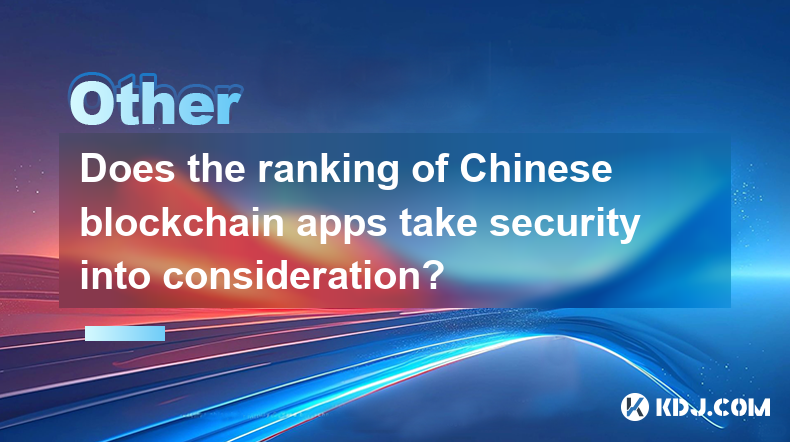
Does the ranking of Chinese blockchain apps take security into consideration?
Apr 14,2025 at 05:00pm
The ranking of Chinese blockchain apps indeed takes security into consideration, as it is a crucial factor in the overall evaluation of these applications. Security is not only about protecting users' data and assets but also about ensuring the integrity and reliability of the blockchain network itself. In this article, we will delve into how security i...
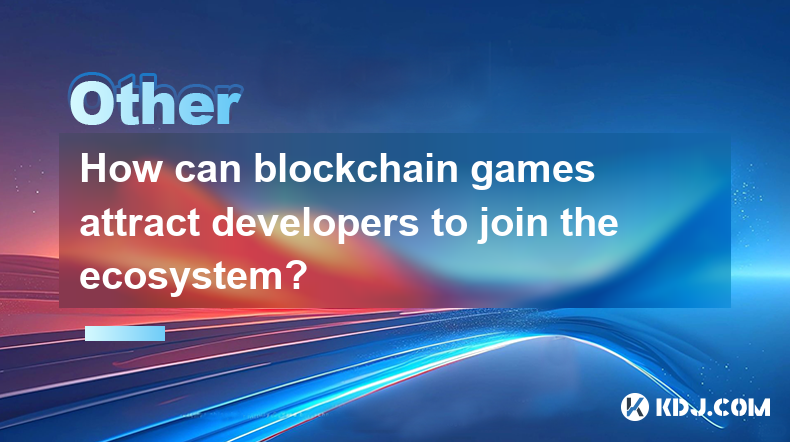
How can blockchain games attract developers to join the ecosystem?
Apr 14,2025 at 04:57pm
Blockchain games represent a burgeoning sector within the cryptocurrency ecosystem, offering unique opportunities for developers to create innovative gaming experiences that integrate decentralized technologies. To attract developers to join the blockchain gaming ecosystem, several strategies can be employed. These strategies not only appeal to develope...
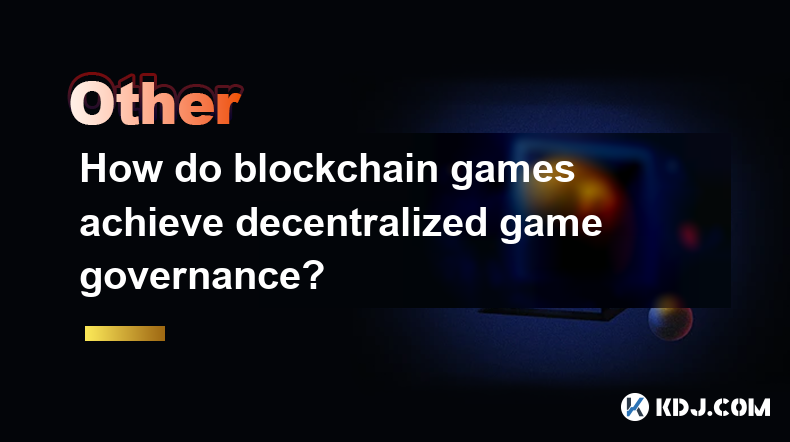
How do blockchain games achieve decentralized game governance?
Apr 14,2025 at 02:35pm
Blockchain games have revolutionized the gaming industry by introducing decentralized game governance, a system that empowers players and ensures fairness and transparency. Decentralized game governance in blockchain games is achieved through a combination of smart contracts, decentralized autonomous organizations (DAOs), and community-driven decision-m...
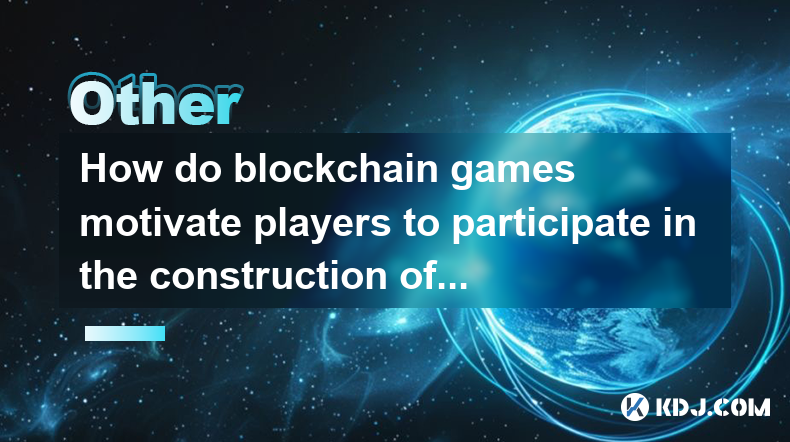
How do blockchain games motivate players to participate in the construction of the game ecosystem?
Apr 14,2025 at 01:08pm
Blockchain games have revolutionized the gaming industry by integrating decentralized technologies and economic incentives that encourage players to actively participate in the construction of the game ecosystem. These games leverage the unique features of blockchain technology, such as transparency, security, and the ability to tokenize assets, to crea...
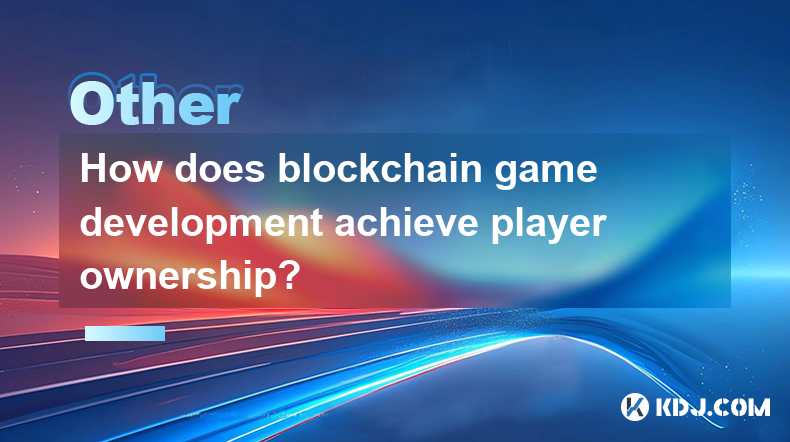
How does blockchain game development achieve player ownership?
Apr 14,2025 at 02:21pm
Blockchain game development achieves player ownership through a combination of innovative technologies and smart contract mechanisms. At the core of this achievement is the use of non-fungible tokens (NFTs), which are unique digital assets that can represent in-game items, characters, or other elements. These NFTs are stored on a blockchain, ensuring th...

Does the ranking of Chinese blockchain apps include cross-chain applications?
Apr 14,2025 at 04:00pm
The ranking of Chinese blockchain apps is a comprehensive evaluation that takes into account various aspects such as user base, transaction volume, and technological innovation. A pertinent question arises regarding whether these rankings include cross-chain applications. Cross-chain applications, which allow different blockchain networks to interact an...

Does the ranking of Chinese blockchain apps take security into consideration?
Apr 14,2025 at 05:00pm
The ranking of Chinese blockchain apps indeed takes security into consideration, as it is a crucial factor in the overall evaluation of these applications. Security is not only about protecting users' data and assets but also about ensuring the integrity and reliability of the blockchain network itself. In this article, we will delve into how security i...

How can blockchain games attract developers to join the ecosystem?
Apr 14,2025 at 04:57pm
Blockchain games represent a burgeoning sector within the cryptocurrency ecosystem, offering unique opportunities for developers to create innovative gaming experiences that integrate decentralized technologies. To attract developers to join the blockchain gaming ecosystem, several strategies can be employed. These strategies not only appeal to develope...

How do blockchain games achieve decentralized game governance?
Apr 14,2025 at 02:35pm
Blockchain games have revolutionized the gaming industry by introducing decentralized game governance, a system that empowers players and ensures fairness and transparency. Decentralized game governance in blockchain games is achieved through a combination of smart contracts, decentralized autonomous organizations (DAOs), and community-driven decision-m...

How do blockchain games motivate players to participate in the construction of the game ecosystem?
Apr 14,2025 at 01:08pm
Blockchain games have revolutionized the gaming industry by integrating decentralized technologies and economic incentives that encourage players to actively participate in the construction of the game ecosystem. These games leverage the unique features of blockchain technology, such as transparency, security, and the ability to tokenize assets, to crea...

How does blockchain game development achieve player ownership?
Apr 14,2025 at 02:21pm
Blockchain game development achieves player ownership through a combination of innovative technologies and smart contract mechanisms. At the core of this achievement is the use of non-fungible tokens (NFTs), which are unique digital assets that can represent in-game items, characters, or other elements. These NFTs are stored on a blockchain, ensuring th...
See all articles






















































































